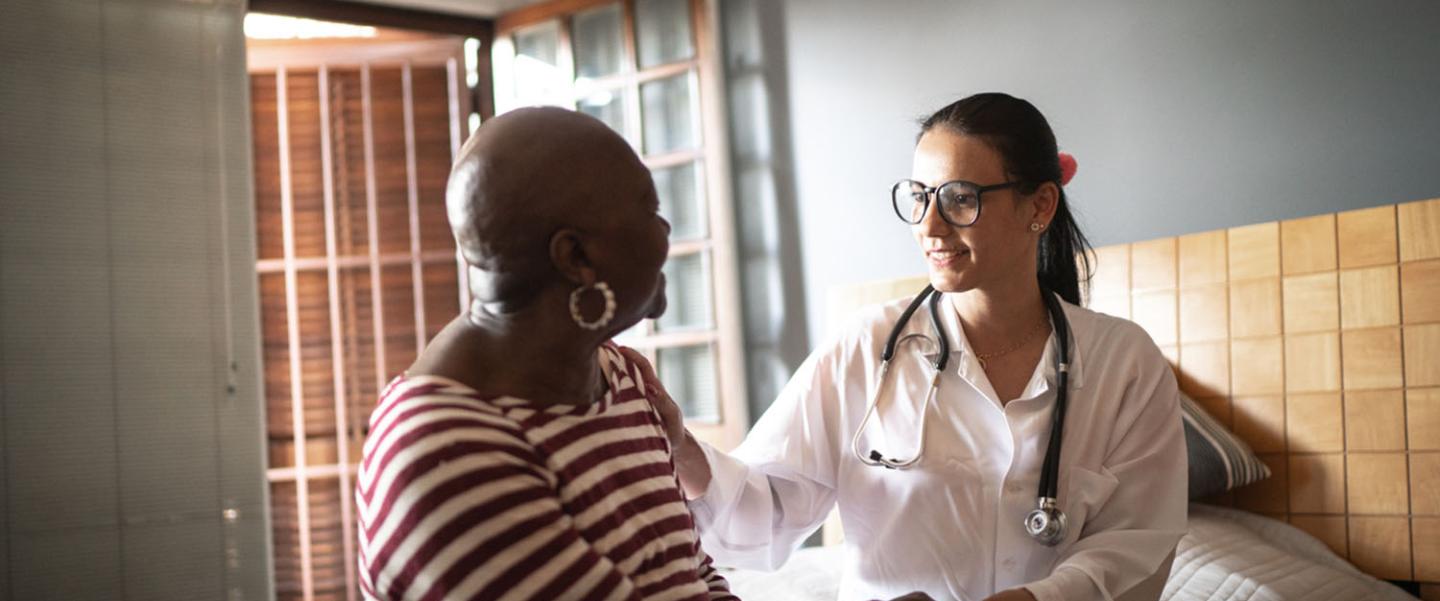HIGHLIGHTS
- California’s Project Roomkey sheltered 62,000 people experiencing homelessness in hotels or motels during COVID. Many were over 65, had chronic health conditions, and had been living on the street.
- Abt Global completed an evaluation of the program in April 2024 led by Abt Principal Associate Nichole Fiore.
- Abt found the program achieved its purpose and was a "game changer" in how communities provide emergency housing to people experiencing homelessness across California.
PROJECT
Project Roomkey Program Evaluation
The Challenge
Implemented by the California Department of Social Services (CDSS) and counties across California, the Project Roomkey (PRK) Program was a statewide effort to protect people experiencing homelessness by giving them an alternative to staying on the street or in congregate shelters during the COVID-19 pandemic. The program served 62,000 people, many of whom were over 65, had chronic health conditions, and had been staying on the street. The program brought them indoors, and the longer they stayed in the hotels or motels the more likely they were to go to permanent housing rather than returning to homelessness. The program was a game changer, profoundly influencing how communities across California provide emergency shelter to people experiencing homelessness. The California Health Care Foundation (CHCF) and the Conrad N. Hilton (Hilton) Foundation contracted Abt Global to evaluate the program’s effectiveness.
The Approach
The Abt evaluation team used a mixed-methods approach to evaluate the PRK program. This approach included a statewide web survey with CDSS PRK grantees, telephone interviews with people involved in designing and implementing the PRK program in 15 communities, site visits to five communities that had PRK programs, and analysis of Homeless Management Information System (HMIS) data from three communities. During site visits, the Abt team interviewed homeless services providers, local governmental partners, healthcare entities, and people with lived PRK experience. We also toured and observed the hotels and motels that were used as PRK sites.
The Results
Abt found that the program achieved its purpose thanks to the partnerships that formed quickly between local service providers and health systems. Not only did PRK meet its original goal of saving the lives of people who were experiencing homelessness, but the program also enhanced how emergency housing (sometimes known as interim housing) is designed and operated in communities across California.The design, implementation, and demobilization of PRK programs across California offer some lessons for providing emergency and interim housing for populations with complex needs. The continued use of hotels and motels along with existing residential buildings was critical for COVID-19 response and could prove useful in response to the ongoing homelessness crisis, to natural disasters, or to future public health emergencies.
Related:
